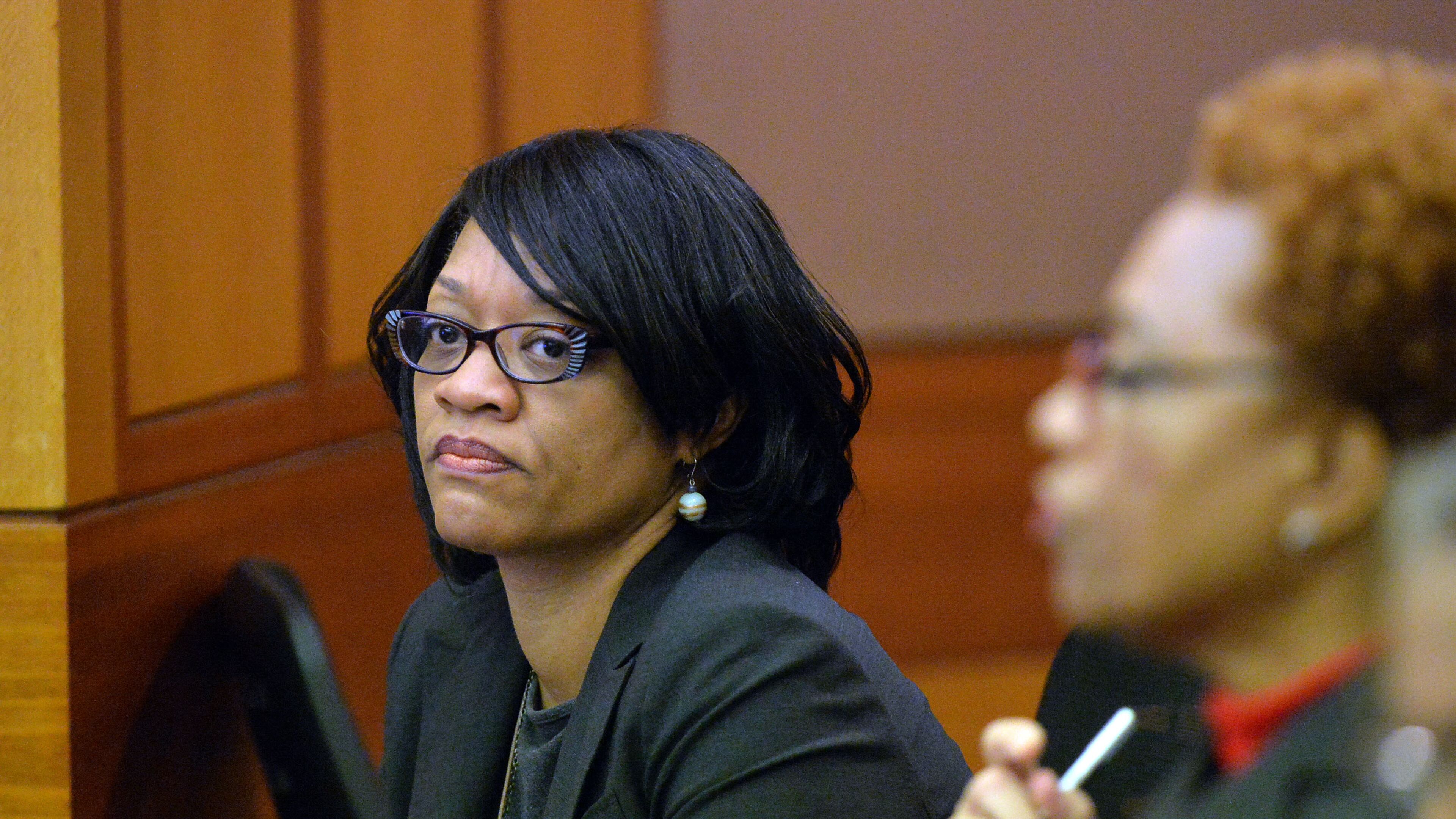Former Atlanta principal convicted in cheating case asks to avoid prison

A former principal convicted in the Atlanta Public Schools’ test-cheating scandal is asking a Fulton County judge to drop her prison sentence.
Dana Evans was one of 11 Atlanta educators found guilty of racketeering in 2015.
Her long-running appeal came to an end last month when the Supreme Court of Georgia declined to hear her case. She now faces one year in prison, a sentence that had been on hold as she sought to overturn her conviction, and four years on probation.
Evans’ attorney, Bob Rubin, is asking Fulton County Superior Court Judge Jerry Baxter to not put her behind bars. He said she’s spent her time since her conviction working in the nonprofit sector, supporting low-income families and refugees who moved to Georgia.
“She’s absolutely terrified at the potential of having to report to prison, and not just for herself, but for her family and for her clients. To be pulled out of the work that she’s doing is difficult for her to fathom,” Rubin said. “She wants to continue to help the at-risk population that she’s working with and continue to do as much good as she can as long as she’s on this earth.”
A hearing is scheduled for Monday, Rubin said.
A spokesman for the Fulton County district attorney did not immediately respond to an email requesting comment.
About a decade ago, an investigation uncovered widespread cheating in Atlanta schools by teachers and administrators who changed students’ answers on standardized tests. Evans, who had been principal of Dobbs Elementary School, knew or should have known about the cheating, investigators said.
During the trial, three former Dobbs teachers testified they told Evans that they suspected cheating, but said she did not investigate.
In his motion asking for a modified sentence that eliminates prison time, Rubin cites Evans’ “extraordinary rehabilitative efforts” since her conviction in the high-profile case.
”Since April 2015, Dr. Evans has brought to bear all of her incredible emotional and intellectual skills to help underprivileged children and families,” he wrote.
That includes work as a counselor; she obtained her state counseling license several years ago. She currently works as a clinical director at a community-based mental health program that serves primarily low-income families.
A prison sentence “is unduly harsh” and “would undoubtedly hurt the community most affected by the cheating scandal, by depriving it of a true warrior for these families,” Rubin wrote.
Evans could become the third educator convicted in the case to spend time in prison.
Tamara Cotman and Angela Williamson reported to prison in 2018 after losing their appeals. They have both since been released.
Reporter Bill Rankin contributed to this article.



